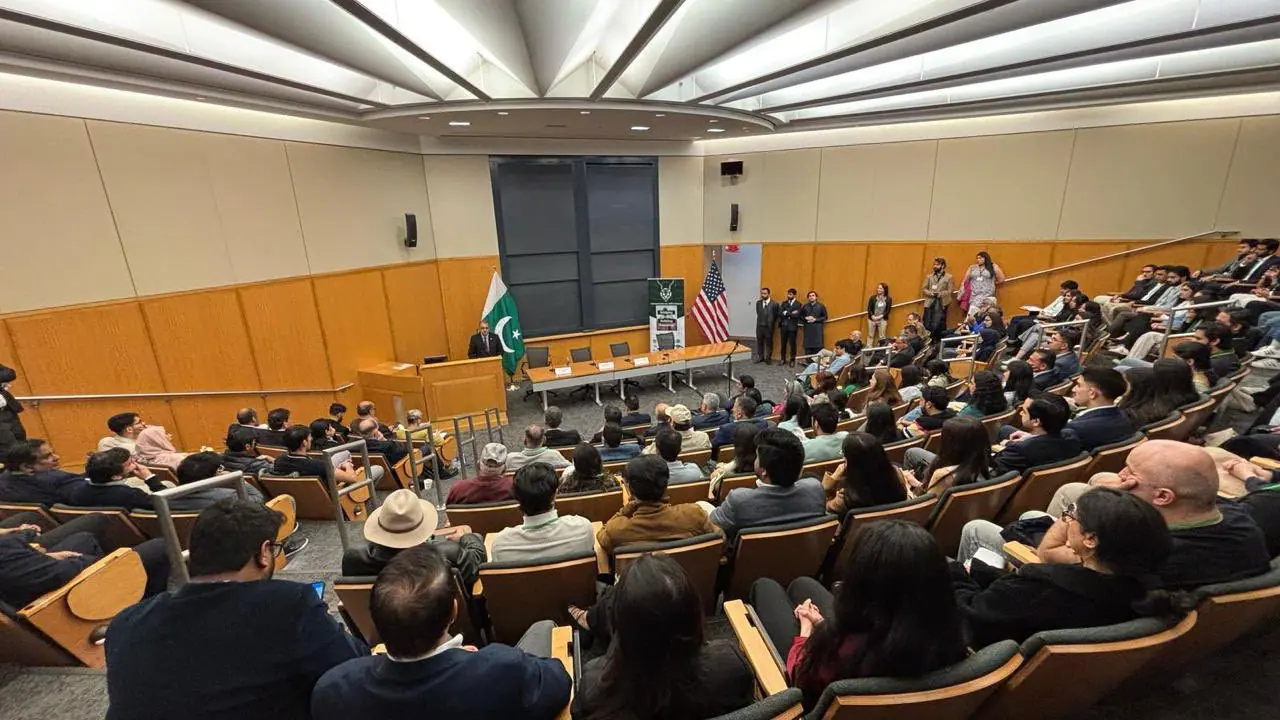Harvard University faces backlash after hosting a Pakistan conference with senior officials, drawing protests from Indian students.
A recent conference on Pakistan, held at Harvard University's South Asia Institute, has sparked sharp backlash from Indian students following the participation of senior Pakistani officials. The event, which included figures such as Pakistan's Finance Minister Muhammad Aurangzeb and Ambassador to the US Rizwan Saeed Sheikh, has drawn criticism for allegedly legitimising a state accused of sponsoring terrorism.

Indian Students Protest: "Harvard Risks Being Complicit"
Indian students at Harvard have expressed outrage over the university providing a platform to Pakistani representatives, especially in light of the April 22 terror attack in Pahalgam, Jammu and Kashmir, which claimed 26 lives. The attack, reportedly linked to Pakistani terror networks, has heightened tensions between the two neighbouring countries.
Two students, Surabhi Tomar and Abhishek Chaudhuri, wrote letters to Harvard leadership and US Senator Marco Rubio, urging the university to take a stand.
“Welcoming representatives of a government that enables or justifies terrorism risks Harvard being complicit. The United States must not host representatives of a state that protects and promotes organisations targeting civilians based on faith,” read one of the letters addressed to Secretary of State Marco Rubio as quoted in a Times of India report.
In their communication to the university, the students demanded that Harvard publicly condemn the Pahalgam attack and show support for grieving Indian and Hindu students.
The students urged Harvard to publicly condemn the Pahalgam attack and express support for grieving Indian and Hindu students through an official statement. They also called on the prestigious Ivy League university to “ensure its campus does not become a platform for whitewashing state-enabled religious terrorism.”
Institute Distances Itself, Scrubs Event Details
In response to the backlash, the South Asia Institute claimed its role in the event was minimal. A representative was quote as saying in the TOI report that the conference was initiated by Pakistani students and the institute provided only logistical assistance.
However, the report pointed out that the institute’s executive director, Hitesh Hathi, actively participated in a session alongside Pakistani-American historian Ayesha Jalal. The session, titled “The Enlightened Muslim: Examining the intersection of religion, modernity, and state formation in Pakistan”, was among several event details that were later removed from the institute’s website without explanation.
While Harvard has not issued a formal statement, the quiet removal of these materials suggests an effort to distance the university from the controversy.


